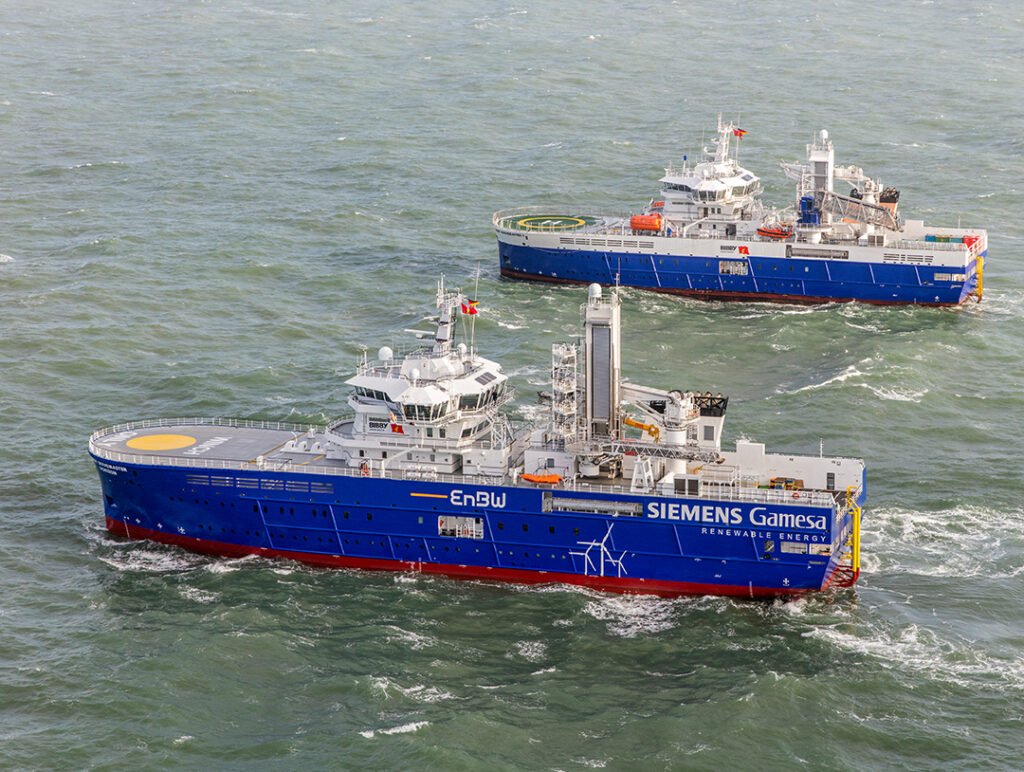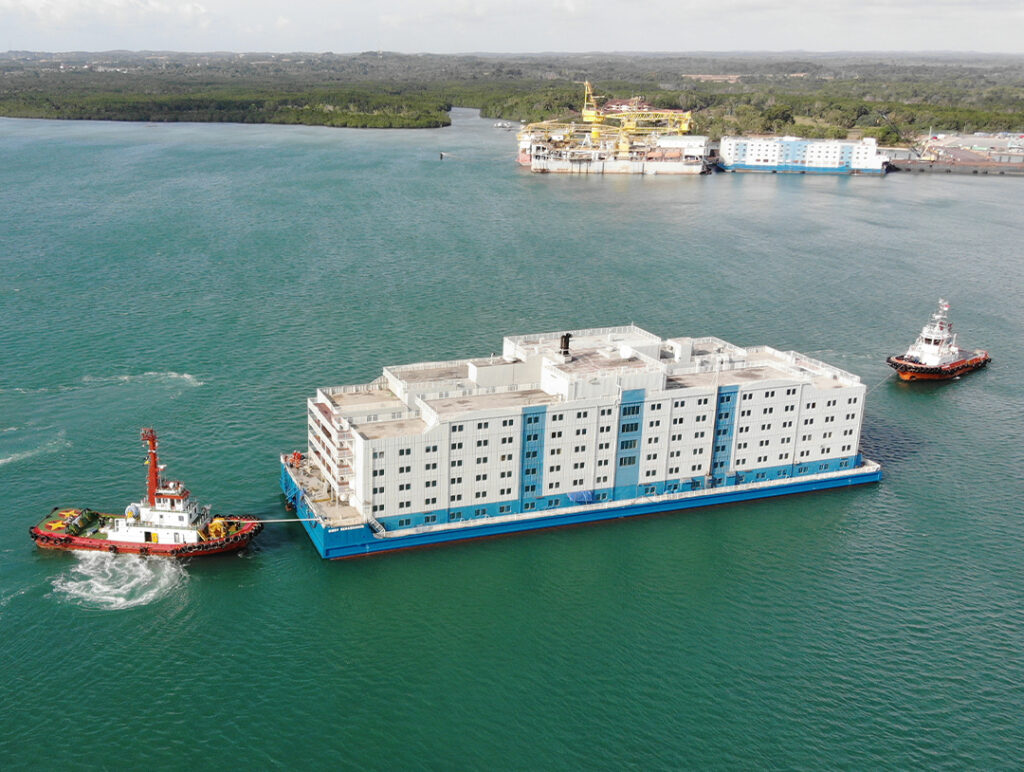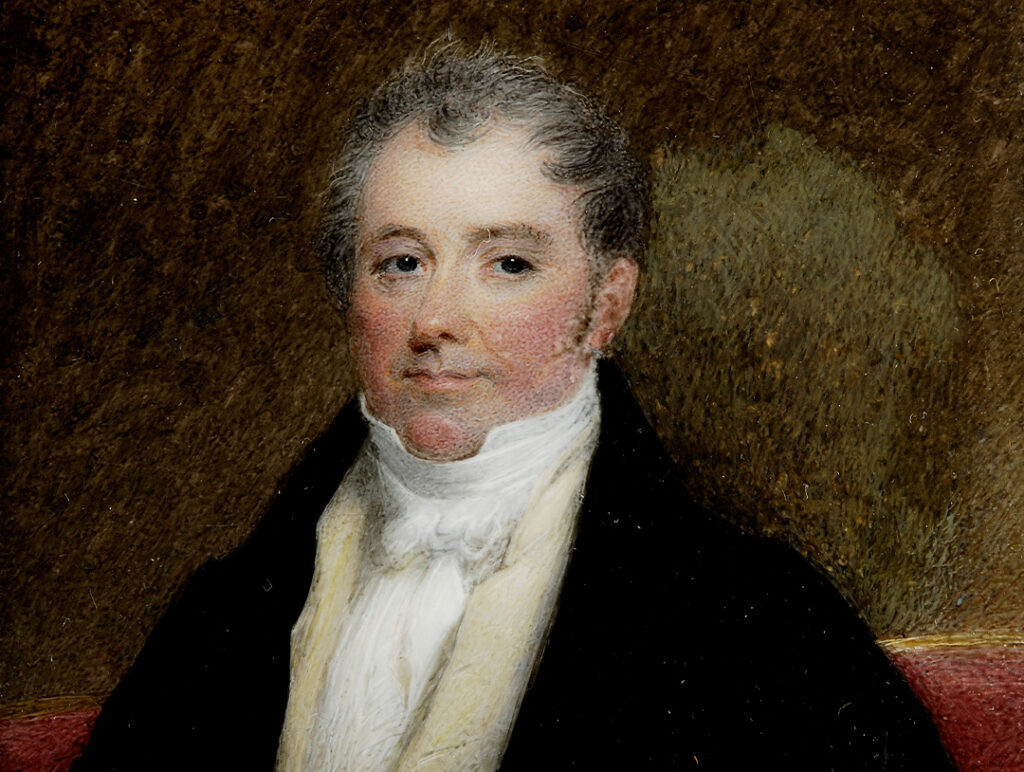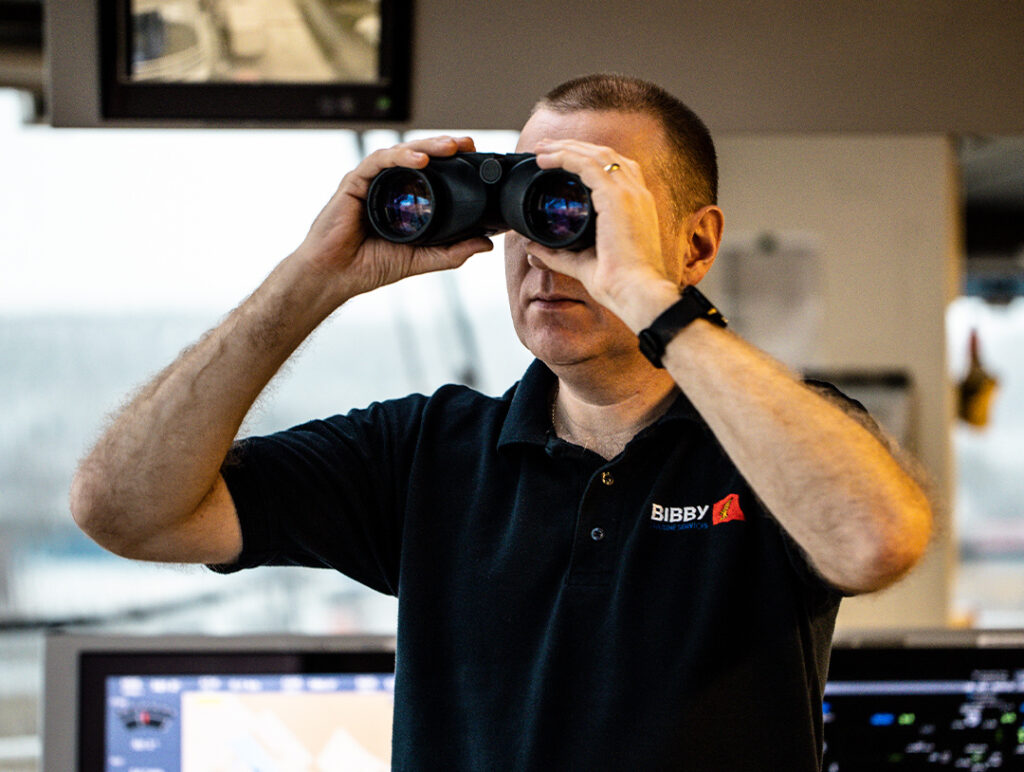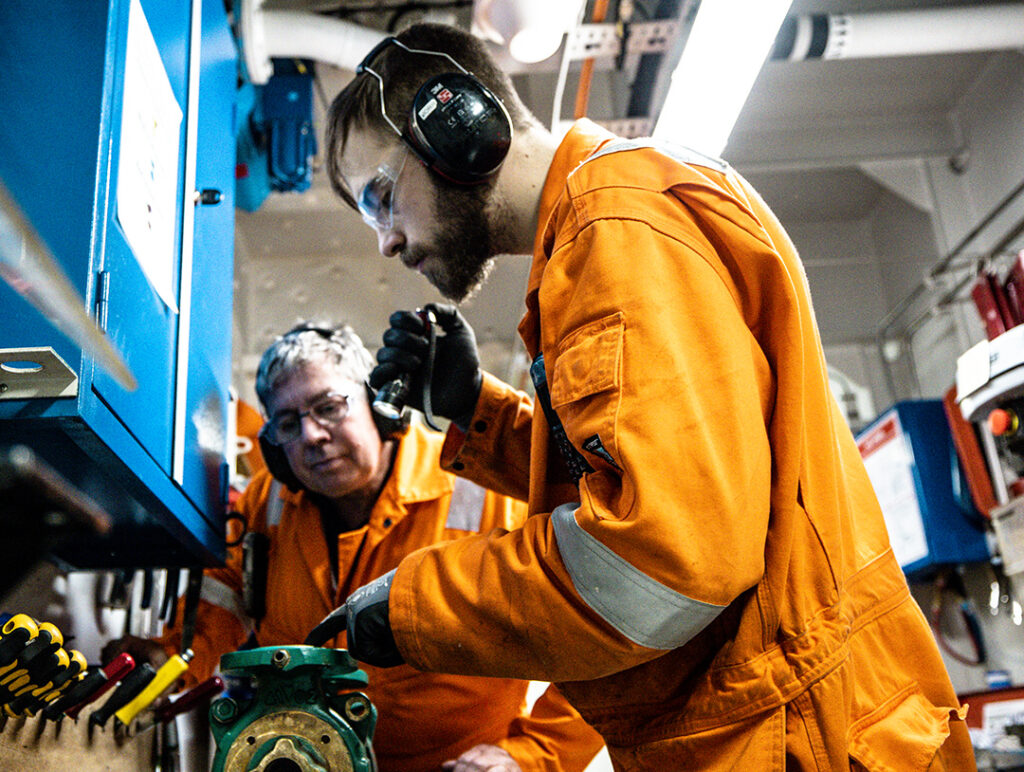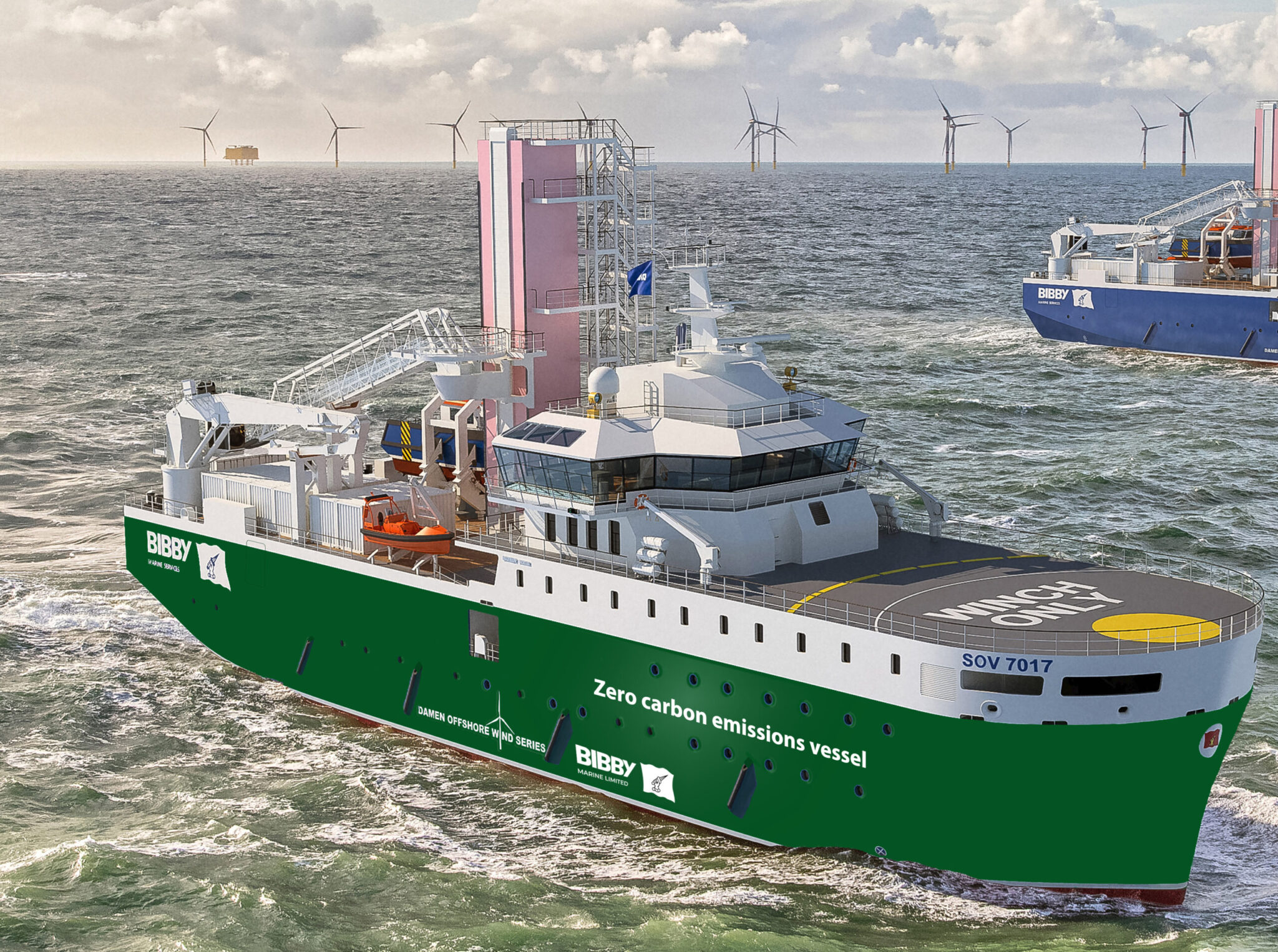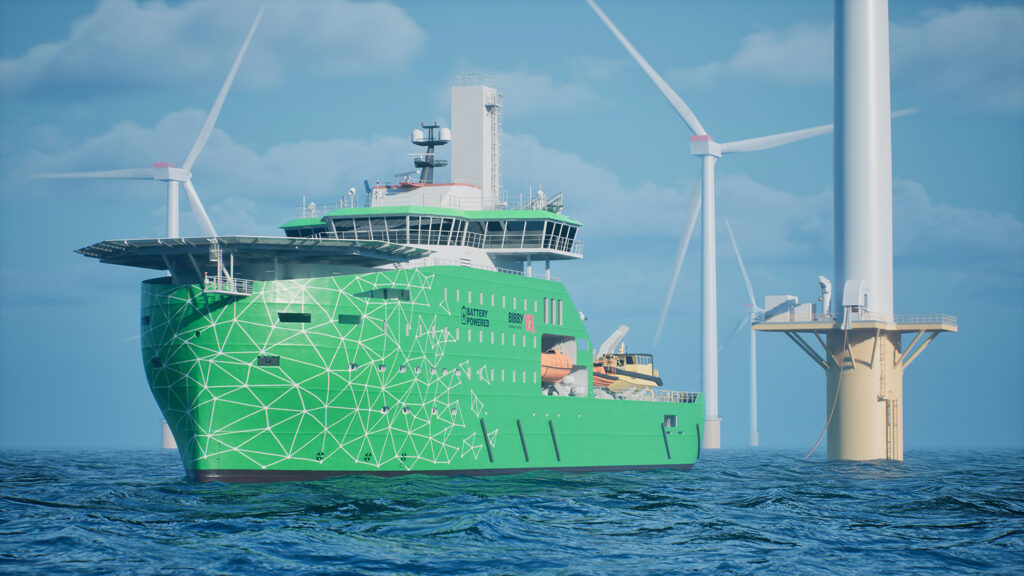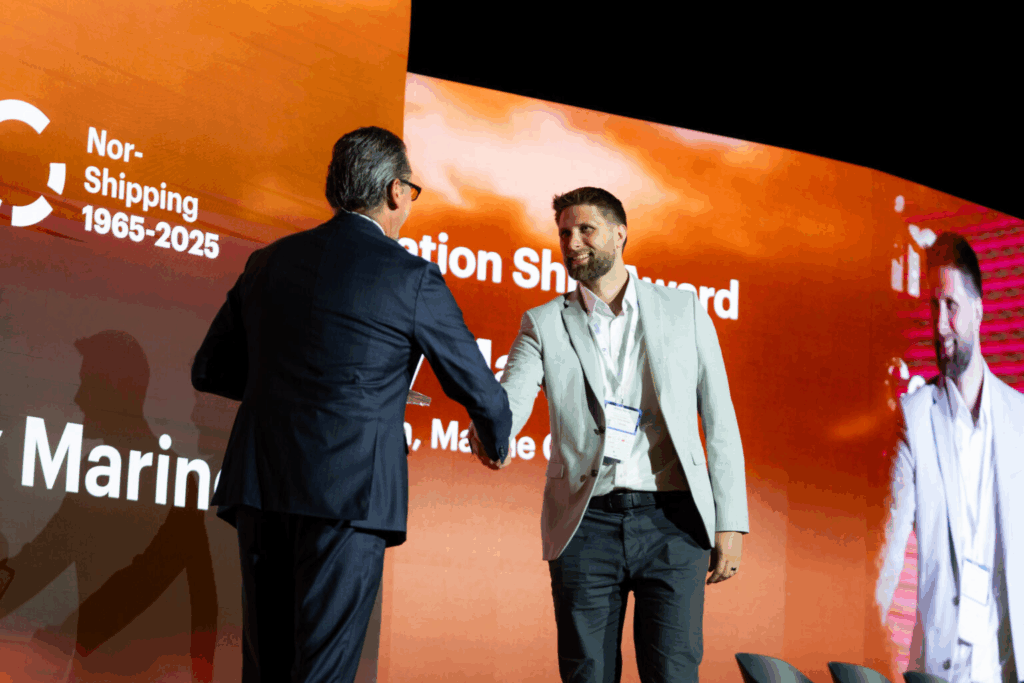Update on the WaveMaster Zero C Project
The WaveMaster Zero C project is an innovative study which aims to find the best suited fuel for the next generation of Service Operation Vessels (SOV’s). SOVs are typically diesel-electric propelled and travel to locations such as offshore wind farms to facilitate operation and maintenance work. They are elaborate vessels which provide worker accommodation on board and have practical features such as a motion compensated gangway. Currently Bibby Marine’s SOV fleet (otherwise known as WaveMasters) have the capability to stay in field for 28 days without refuelling.
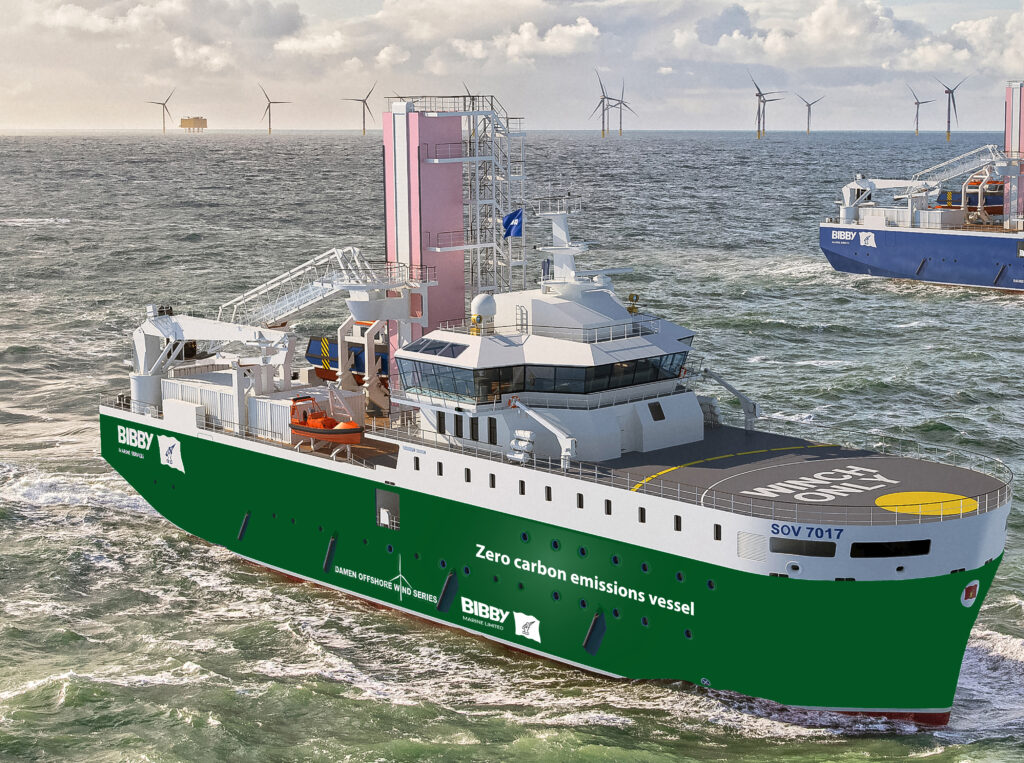
Where are we now?
Most SOVs and workboats use Marine Gas Oil (MGO). We understand the current process of using MGO could be improved upon by instead using an environmentally friendly alternative fuel, one which is zero carbon. We are motivated to reach the UK Government’s Maritime 2050 goal of developing decarbonised vessels and are aiming to decarbonise our vessels earlier, before 2030.
In the maritime industry there has been progress made in optimising energy systems, but also a limited shift in transitioning away from fossil fuels to sustainable fuels. Vessels used in existing projects are smaller duty vessels such as tugs, ferries and Crew Transfer Vessels (CTVs), but there have been challenges in scaling up technology. An SOV is a medium sized vessel measuring 70m-110m Length Overall (LOA), thus is a good stepping-stone for scaling up renewable power systems for trans-ocean vessels.
Project Outline
Our previous blog post introduced the Zero C project in detail, click here to read. Essentially the project involves the design and assessment of five alternative fuelled SOVs. The fuels are Hydrotreated Vegetable Oil (HVO), methanol, battery, ammonia, and hydrogen fuels. Following the design from Damen Shipyards, the vessels will be peer assessed and scrutinised by the project team consisting of Bibby (lead), Lloyd’s Register, ORE Catapult, Houlder, and Square 5. EFC Energy Solutions and Ricardo are sub-contractors. The concepts will be analysed from a technical, safety, business case and environmental standpoint. Houlder in parallel will be leading an assessment into the capacities of Zero Emission (ZE) ports in the UK. ORE Catapult have led a programme of industry engagement to understand the market opinions and momentum when it comes to ZE shipping.
Presently more companies are prioritising environmental credentials, but the route of how to realise this is not yet clear. A drive for more cross-sector collaboration would see better alt-fuel development, but with a lack of regulation or incentive to move away from fossil fuels this uptake is stunted.
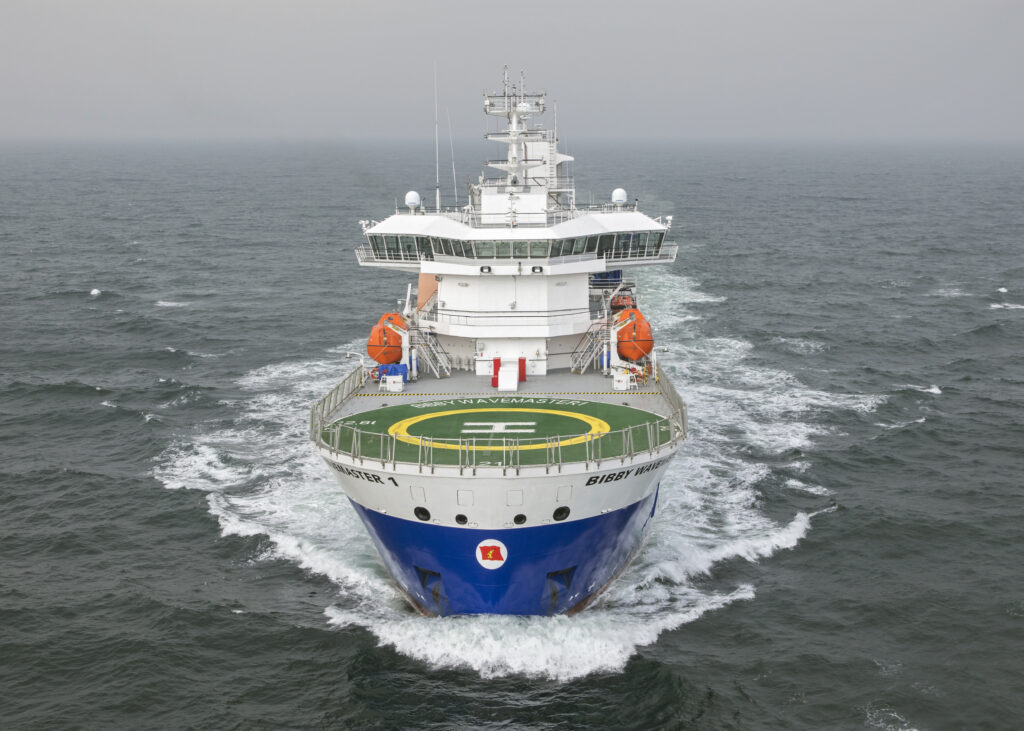
Challenges
When it comes to the fuel options, public opinion is firmly weighted behind hydrogen fuel with a battery hybrid system. As far as the engineering feasibility goes, we are still evaluating, but some main challenges have been identified.
- For example, a battery solution would only have range for one day of operations, and would require significant recharging infrastructure.
- An HVO solution would be able to fuel existing vessels, but the supply chain for maritime is not mature and is unlikely to be able to cope with demand.
- Finally, regarding hydrogen and ammonia, both have significant size drivers in the vessel design which result in larger tanks and in some cases longer vessels.
Our vision
The above work will all culminate in a recommendation by the project team for the best suited fuel for SOVs. The output will then be further developed to transform it into an in-depth vessel design and optimised system with aid from vessel architects and classification societies. It is a prime ambition of Bibby Marine to operate a ZE SOV before 2030. This is only the beginning of our zero-emission journey but it has already seen itself become central to our strategy and affects the business decisions that we make daily.
Our WaveMaster Zero C project has been active since October 2020 and is scheduled to complete and publish its recommendations in November 2021.
